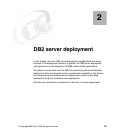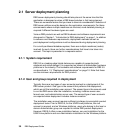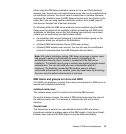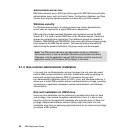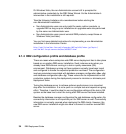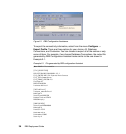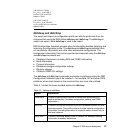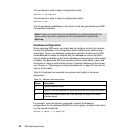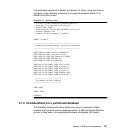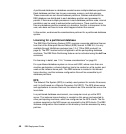34 DB2 Deployment Guide
On Windows Vista, the non-Administrator account still is prompted for
administrative credentials by the DB2 Setup Wizard. So the Administrator’s
intervention in the installation is still required.
Take the following limitations into considerations before starting the
non-Administrator installation:
Non-Administrator users can only install fix packs, add-on products, or
upgrade DB2 as long as prior installations or upgrades were also performed
by the same non-Administrator user.
Non-Administrator users cannot uninstall DB2 products, except those on
Windows Vista (and later).
You can find more detailed instructions for implementing a non-Administrator
installation in the Information Center:
http://publib.boulder.ibm.com/infocenter/db2luw/v9r5/index.jsp?topic=/
com.ibm.db2.luw.qb.server.doc/doc/t0050571.html
2.1.4 DB2 configuration profile and database profile
There are cases where enterprise wide DB2 server deployment has to take place
based on an existing DB2 server installation. Such instances arise when you
already have DB2 servers running in a test or quality assurance (QA)
environment. Databases running on these systems normally have been tuned
and configured to handle the expected production workload. The configuration
involves parameters associated with database manager configuration (dbm cfg)
and database configuration (db cfg). These values can be implemented on the
production system during the deployment process to minimize or eliminate post
deployment tasks.
Tuning the database server to achieve optimum performance is an important
step after the installation. It is not a quick or a simple task and requires on-going
effort. Therefore, it could be ideal to use configuration settings of the test or QA
system as the base line to start the tuning after DB2 server has been installed.
Besides the database manager configuration file and database configuration file,
connectivity information is an important part for DB2 server as well. Connectivity
information is normally required when deploying the DB2 clients. However, the
new DB2 server installation might also have to connect to another remote DB2
server.






